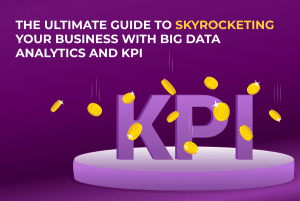How to Manage and Turn Underperforming Affiliates Into Profitable Partners
Underperforming affiliates can be a huge disaster for your affiliate business. Find out how to manage and transform them into profitable partners.
Affiliates can be a great way to generate extra income for an online business. But if your affiliates underperform, they can seriously damage your company’s success.
As a business owner, you can’t accept poor performance. It costs a lot of money, time, and effort. But what can you do on your part to fix all performance issues?
Fortunately, there are many successful practices to manage underperformers and increase their productivity. Let’s go through 7 proven methods to effectively help those who aren’t doing as great.
Who are considered underperforming affiliates?

Underperformance takes place when results drop below the required level. This can be reflected in several aspects, such as:
- Declined efficiency. The overall outcomes don’t reach the expected level. For example, the number of leads generated is expected to be over 1000, while an affiliate generates only 500.
- Poor quality. Sometimes underperforming team members fake performance through fraud or automated bots, which will never lead your business sales growth.
How to Manage Underperformance? Find a Reason for It
If you ever noticed underperforming members who lag behind the rest of the team and wondered how to manage affiliates, you should immediately find a reason for it.
Take a critical look at your approach to see where you might have made some mistakes. Let’s have a look at some of them.
Your commission rate is too low
Let’s be honest — money is the primary incentive. If your program participants don’t feel like they’re fairly rewarded, they’ll never do their best.
Lack of skills
Affiliate marketing attracts many people attempting to make money online. But the truth is that most of them often have no relevant experience or skills.
Your affiliates are not familiar enough with your brand
If a person has a poor understanding of your products, they’ll hardly succeed in promoting them.
Your terms and conditions often change
This may be a severe obstacle. Agree that it is challenging to get good results when conditions constantly change. Set your goals and think about what is really important for your business.
Your payouts depend on unreasonably high thresholds
Making your affiliates generate high earnings to become eligible for a payout can lead to apathy. So why work hard for this?
Personal issues
Not often, but challenging events in personal lives can affect performance. Unfortunately, no one is safe from this.
Extreme workload
Affiliate marketing differs a lot from regular employment. Many people are engaged in so many programs that they can’t keep on top of them all. As a result, they do many things badly rather than a few things well.
How to manage affiliates: best practices

Before “firing” your outsiders, let’s find out how to help them become profitable partners.
Find the ground for performance problems
Understanding the problem is already half the solution. Be perceptive to different issues your team members may have. Note that dealing with an underperformer may also require patience and empathy from your side.
Set an appropriate tone for the talk and ask the right questions. Once you find the reason for underperformance, start acting correspondingly. Point out specific situations of how poor productivity has affected your success.
Don’t forget to ask what your affiliates expect from your partnership and what they may lack. Create an action plan together and try to always stick to it.
Revise your payment strategy
If you pay your partners unfairly, they may become reluctant to promote your products. In fact, even slightly raising the basic commission may provide enough motivation to work better.
Don’t shun offering bonuses for the best performance. This step usually urges competition among your affiliates, which is a fantastic incentive. Remember that the reward can also include discounts, vouchers, or gift cards.
If you have a payout threshold, consider reducing or removing it. Be consistent in your payments. Don’t forget that money can stimulate beginners, even if it’s not much.
Change affiliative management style
If you have many inefficient members, it’ll be good to review your current affiliative management style.
Is your onboarding sufficient? Proper onboarding quickly adapts and engages newcomers. If you fail, they can be ill-prepared for their tasks.
Do you set clear goals and provide development opportunities? Without a clear understanding of what you expect, some affiliates never improve their performance. Also, your partners may feel less motivated if they don’t see a way for development and growth.
Tool up your team
Remember that good software is a must in performance marketing. Outdated and inconvenient tools slow efficiency down and cause frustration. That’s why it’s essential to offer the tools to do the job well.
What features to prioritize highly depends on your business. For some, this could mean an intuitive interface. For others, it could be quality reports to track the progress.
Look into your company’s technological shortcomings and find a platform to enhance your affiliates’ management.
Conduct regular meetings
Dedicate your affiliate program management for at least an hour a day. As a chief manager, you need to contact your team members regularly. Start by talking to them once a week to see if they need any help.
Also, give your underperformers enough support. Some of them may have no ideas on how to better position your products. Help with engaging topics to focus on.
Check-in to make sure there are no issues to be addressed. Developing a good relationship with your members will lead your business to the top.
Recognize progress and provide feedback
If you expect your underperforming affiliates to improve but never show gratitude, they can feel underestimated. As a partner starts to make progress, reward them for their effort and the positive effect it has.
Provide honest and unbiased feedback every time your affiliate makes any crucial step. Detailed reviews always help see the progress and recognize the areas that still need attention.
Regard these points when providing feedback to your partners:
- Focus on one-two issue at a time to avoid overwork
- Keep your comment concise yet positive
- Highlight how positive changes impact the overall performance
Let underperformers go
If you see that a miracle won’t happen, you may want to let your underperformers go. Sometimes there are no chances for headway, and the best solution for affiliates is to leave your program.
Remember, there are possible adverse effects of having a poor performer after trying all the available options. And releasing underperformers may be the best decision for your whole team in the long run.
Removing ineffective members from your program allows you to focus your efforts on the best performers. Also, if you have an attractive commission rate, finding a replacement won’t be a big deal.
Some DON’Ts, while managing underperforming affiliates
When dealing with underperforming team members, consider some principles you should never break:
- Never discuss particular performance issues with other affiliates from your team.
- Don’t put off dealing with poor performance. The sooner you take measures, the better.
- Don’t be too intrusive trying to make someone resolve the issues.
- Never avoid making a concise, stepwise plan that will be easy to follow.
- Don’t put the blame entirely on the affiliate. Consider how YOU may influence poor performance.
- Don’t forget to follow up. Monitor affiliates’ improvement regularly, and think about what can be improved.
Conclusion: How to Manage Affiliates to Make the Most of Their Efforts?
Underperforming affiliates are a problem for a lot of businesses. They act as a drain on your funds, distract your attention, and waste your time. Luckily, there are many great ways to manage and turn them into profitable partners.
Start with understanding what causes underperformance. Once done, you can develop an action plan to tackle it. Ask what your program participants lack and what achievements you expect from them.
Show your interest and desire to build a long-term partnership. Remember that often underperformance is a chance to know your partners better and take your business to the next level.
Do you have any questions about managing underperforming affiliates? Let us know!



